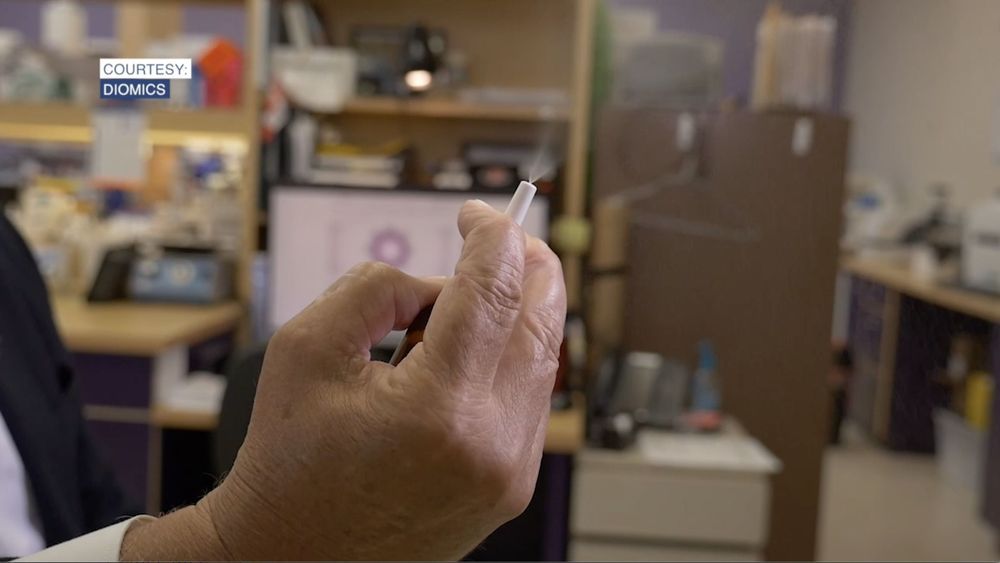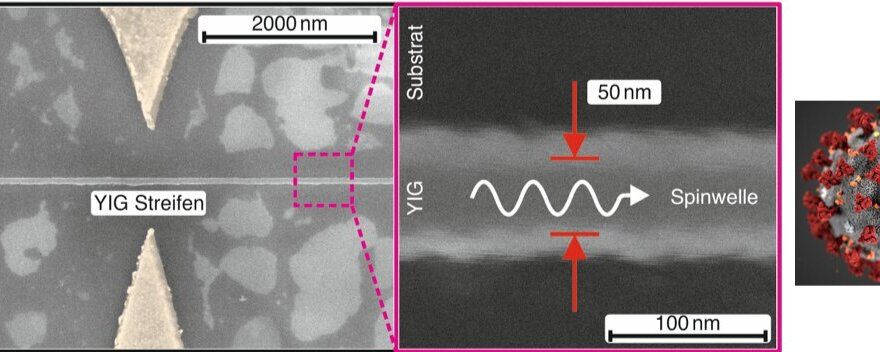Scientists claim to have found the first known extraterrestrial protein in a meteorite.
Team’s goal is to take the aircraft up into the icy stratosphere to 25km above the Earth.

A HUGE meteor streaked in the skies above California, leaving onlookers stunned with one claiming it was “a close call”.


The FCC authorized Microsoft to perform proof-of-concept demonstrations of a service that would connect its cloud computing service Azure with a ground station the company proposed to build.
“If the demonstrations result in significant market interest, Microsoft will file an application for regular earth station authority with the International Bureau (IB) to support future commercial operations,” the company wrote in the filings.
The company’s strategy will put it in competition with Amazon, which in November 2018 launched its similar AWS Ground Station service.
Microsoft is looking to compete with Amazon with a service that connects satellites directly to a cloud computing network.

o,.o.
Magnetism offers new ways to create more powerful and energy-efficient computers, but the realization of magnetic computing on the nanoscale is a challenging task. A critical advancement in the field of ultralow power computation using magnetic waves is reported by a joint team from Kaiserslautern, Jena and Vienna in the journal Nano Letters.
A local disturbance in the magnetic order of a magnet can propagate across a material in the form of a wave. These waves are known as spin waves and their associated quasi-particles are called magnons. Scientists from the Technische Universität Kaiserslautern, Innovent e. V. Jena and the University of Vienna are known for their expertise in the research field called ‘magnonics,’ which utilizes magnons for the development of novel types of computers, potentially complementing the conventional electron-based processors used nowadays.
“A new generation of computers using magnons could be more powerful and, above all, consume less energy. One major prerequisite is that we are able to fabricate, so-called single-mode waveguides, which enable us to use advanced wave-based signal processing schemes,” says Junior Professor Philipp Pirro, one of the leading scientists of the project. “This requires pushing the sizes of our structures into the nanometer range. The development of such conduits opens, for example, an access to the development of neuromorphic computing systems inspired by the functionalities of the human brain.”

Materials scientists at Duke University have uncovered an atomic mechanism that makes certain thermoelectric materials incredibly efficient near high-temperature phase transitions. The information will help fill critical knowledge gaps in the computational modeling of such materials, potentially allowing researchers to discover new and better options for technologies that rely on transforming heat into electricity.
The results appear online on September 4 in the journal Nature Communications.
Thermoelectric materials convert heat into electricity when electrons migrate from the hot side of the material to the cold side. Because providing a temperature difference between its two sides is required, researchers are interested in trying to use these materials to generate electricity from the heat of a car’s tailpipe or recovering energy lost as heat in power plants.

Researchers from China continue in the quest to improve methods for bone regeneration, publishing their findings in “Cryogenic 3D printing of dual-delivery scaffolds for improved bone regeneration with enhanced vascularization.”
A wide range of projects have emerged regarding new techniques for bone regeneration—especially in the last five years as 3D printing has become more entrenched in the mainstream and bioprinting has continued to evolve. Bone regeneration is consistently challenging, and while bioprinting is still relatively new as a field, much impressive progress has been made due to experimentation with new materials, nanotubes, and innovative structures.
Cell viability is usually the biggest problem. Tissue engineering, while becoming much more successful these days, is still an extremely delicate process as cells must not only be grown but sustained in the lab too. For this reason, scientists are always working to improve structures like scaffolds, as they are responsible in most cases for supporting the cells being printed. In this study, the authors emphasize the need for both “excellent osteogenesis and vascularization” in bone regeneration.
The National Science Foundation has awarded a highly competitive $5 million grant to Vanderbilt University that greatly expands a School of Engineering-led project for creating novel AI technology and tools and platforms that train and support individuals with Autism Spectrum Disorder in the workplace.
The significant federal investment follows a successful $1 million, nine-month pilot grant to the same team that forged partnerships with employers and other stakeholders and produced viable prototypes through immersive, human-centric design. The multi-university team includes Yale University, Cornell University, Georgia Institute of Technology and Vanderbilt University Medical Center as academic partners.
The grant, made through NSF’s Convergence Accelerator program, advances the School of Engineering’s focus on Inclusion Engineering,® which uses the disciplines within engineering to broaden meaningful participation for people who have been marginalized.

For college students studying science, doing labwork as part of their classes is a vital way to learn research skills and better understand concepts from lectures.
That presents a challenge for schools that are operating remotely during the coronavirus pandemic — so some biology programs are mailing brains, eyeballs, and even entire fetal pigs to their students so they can dissect them at home.
At Lafayette College, neuroscience students enrolled in a physiology course recently received packages in the mail that contained preserved sheep brains, which are commonly chosen by schools due to their close resemblance to human brains. Then, neuroscientist and psychologist Luis Schettino — who, in the interest of transparency, was one of my professors when I attended Lafayette — guided his students over a video call as they dissected the brains.
Special delivery!
